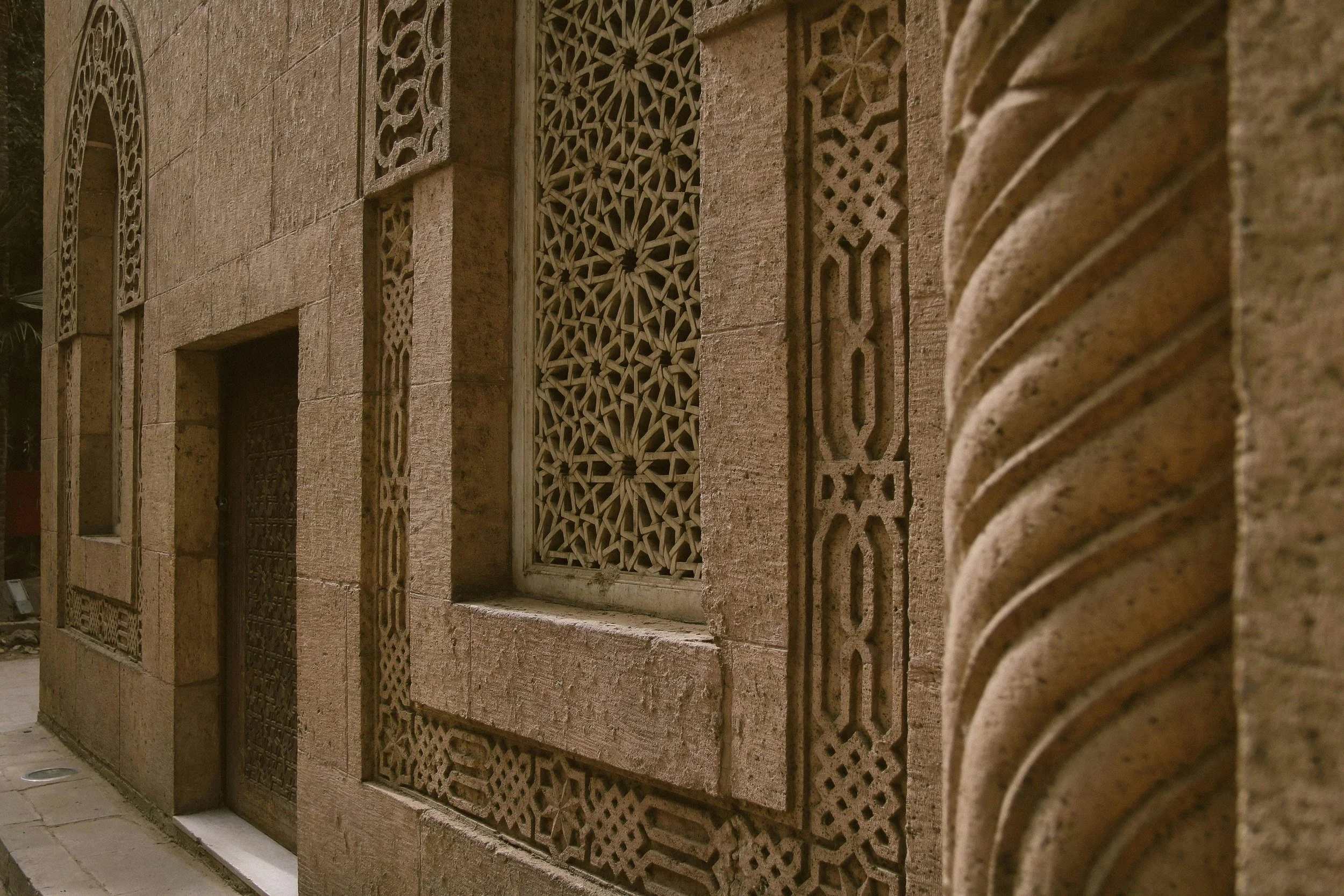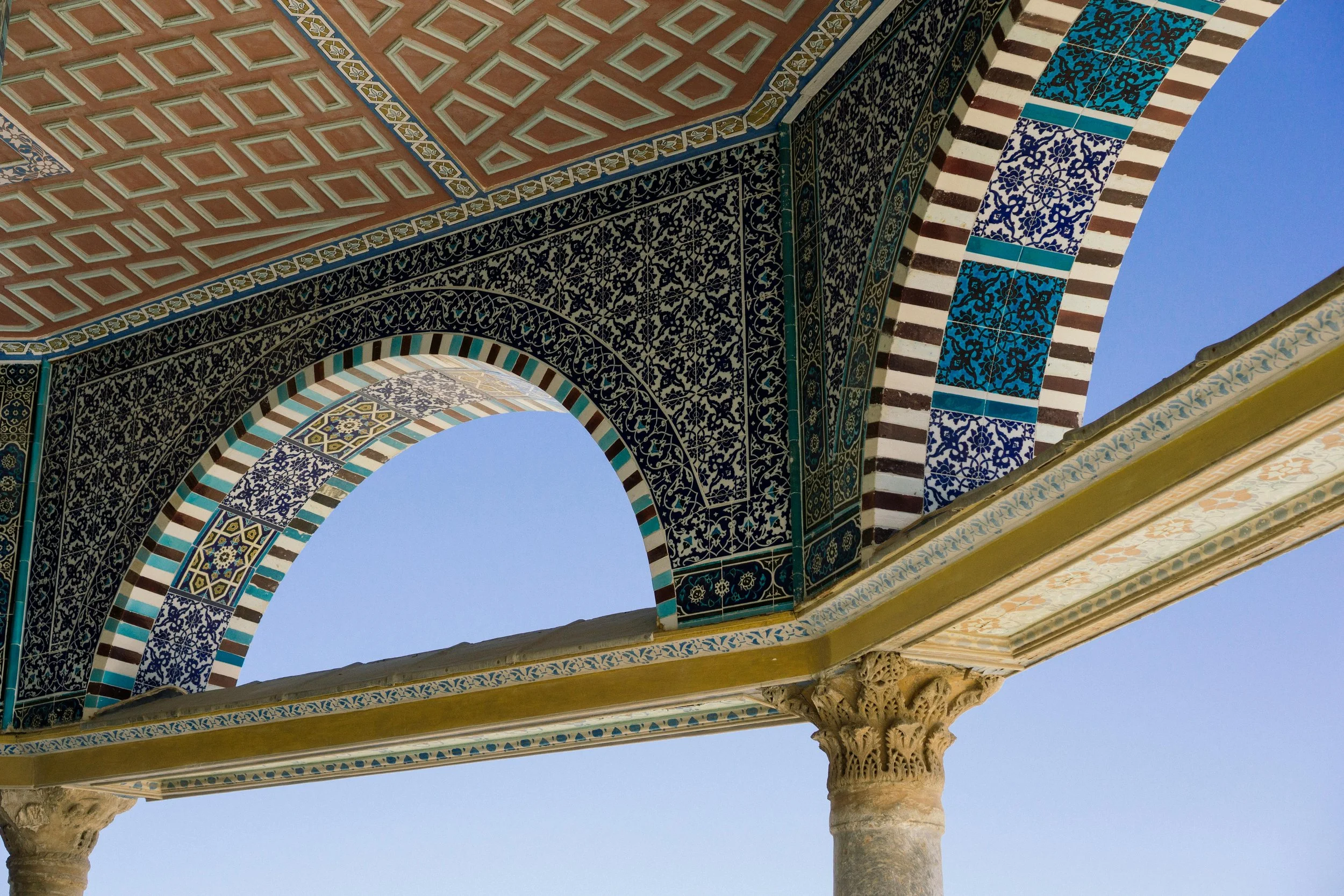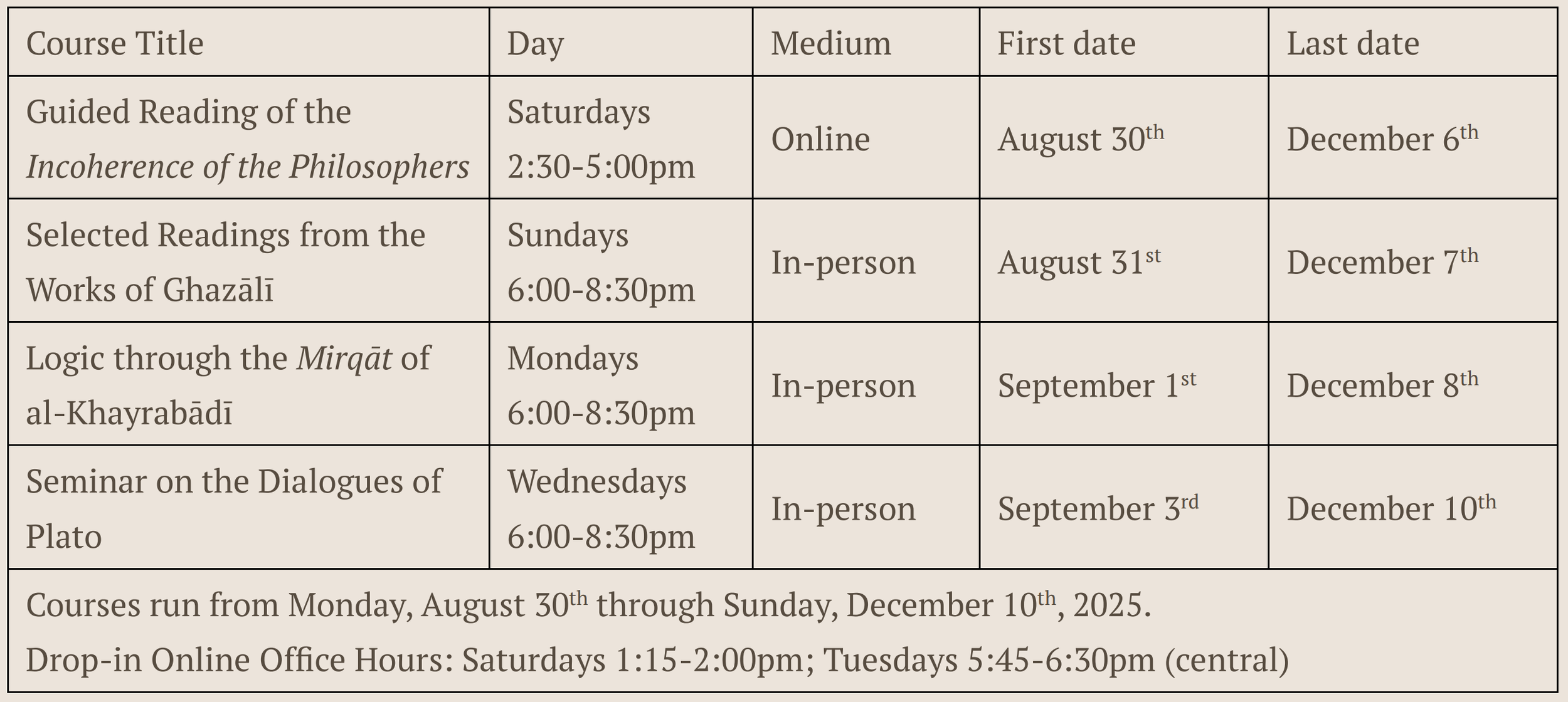Fall 2025 Courses
The Ḥikmah Center is offering the following courses in the Fall 2025 semester.
Guided Reading of the Incoherence of the Philosophers
Selected Readings from the Works of Ghazālī
Logic through the Mirqāt of al-Khayrabādī
Seminar on the Dialogues of Plato
Registration is currently closed. Check back soon for information on Spring 2026 courses and registrations
Fall 2025 Courses
-
Course Description
Abū Ḥāmid al-Ghazālī (d.505/1111) responded to many trends and factions in his day. He spoke out against the religious externalism of the scholarly class in Baghdad, he rejected the esoteric interpretations of the bāṭiniyyah that undermined the sacred law, and he attempted to demonstrate the shaky intellectual grounding of falsafah, a brand of peripatetic philosophy that was expounded and popularized by Abū ʿAlī Ibn Sīnā (d. 427/1037). Ghazālī wrote two works on the philosophy of Ibn Sīnā and his followers. The first is the Intentions of the Philosophers, Maqāṣid al-Falāsifah, which is a summation of their thought. The second is the Incoherence of the Philosophers, Tahāfut al-Falāsifah, in which Ghazālī argues that, on twenty issues, the falāsifah have failed to meet their own standards of philosophical demonstration. He branded the falāsifah as disbelievers on account of three of these issues.
The Incoherence went on to influence later critiques of falsafah through the works of Fakhr al-Dīn al-Rāzī and the later kalām tradition, which essentially fused the topics of philosophy with those of kalām, as al-Taftāzānī describes at the beginning of Sharḥ al-ʿAqāʾid. The continued engagement of Muslim thinkers with the philosophy of Ibn Sīnā after Ghazālī, the fact that Ghazālī took issue with only twenty of their doctrines, and the production of post-Ghazālian commentaries on Ibn Sīnā’s works refutes the common trope that Ghazālī closed the book on peripatetic philosophy in the Islamic world.
In this guided reading course, students will have the opportunity to directly engage with the arguments of both the falāsifah and Ghazālī through a close reading of the Incoherence. Students will learn to reiterate arguments on each side, analyze them into their logical forms, and offer their own assessments of the intellectual tension between Ghazālī and the falāsifah. They are encouraged to voice their own opinions and to connect the content of the Incoherence with modern philosophical doubts.
Course Duration—One semester
Prerequisite—Students must be able to read and understand Arabic with the help of a dictionary.
Learn more by downloading the course syllabus here.
-
Course Description
This course is a study of selected passages from the works of the Proof of Islam Abū Ḥāmid al-Ghazālī. Ghazālī is a deep, multifaceted, and intimately relatable scholar of Islam. We will read his autobiography, the Deliverance from Error, where we will learn about Ghazālī’s own struggle with skepticism, his encounter with various Muslim groups, and his journey from confusion to comfort. We will then explore Ghazālī’s understandings of kalām in the Moderation in Belief, his spirituality in sections of the Revival of the Religious Sciences, and his metaphysics in the Niche of Lights.
The first quarter of each session will be dedicated to a summary and brief analysis of the assigned text by the instructor. The rest of the session will be an open group discussion led by the instructor. Students are encouraged to voice their own ideas and make connection between Ghazālī’s thoughts, the modern world, and their own lives.
Course Duration—One semester
Learn more by downloading the course syllabus here.
-
Course Description
Formal logic is the science that prevents us from making mistakes in our reasoning. It protects us from using vague terms, false premises, and fallacious arguments and from falling victim to these mistakes when we hear them from others. When we are tricked by fallacies, we end up harboring false and inconsistent beliefs while thinking that we know what we do not know. In order to avoid this, students of logic study the principles of valid conception, assent, and reasoning. By applying these principles to their own ideas and those of others, they are able to filter out the distracting fallacies around them and pursue the truth with clarity and validity.
Moreover, Islamic scholarly texts adhere invariably to the rules of formal logic, and they are replete with the Arabic logic terminology that students will learn in this course. A study of formal logic in Arabic is, therefore, indispensable for accessing the texts of the Islamic scholarly tradition.
This course introduces students to the Arabic logic tradition (manṭiq) through a close reading the Mirqāt of Faḍl-i Imām al-Khayrabādī (d. 1827-8). Khayrabādī was a leading scholar of the rational sciences (al-ʿulūm al-ʿaqlīyah), and his Mirqāt represents the culmination of logic primers in the Avicennan tradition. Students will learn the main terms of the Arabic tradition of formal logic in its broad division into concepts (taṣawwurāt) and propositions (taṣdīqāt). We will draw on supplementary material from the greater Arabic logic tradition as well as material from the Western tradition to further our discussions.
Course Duration—One semester
Prerequisite—Students must be able to read and understand Arabic with the help of a dictionary.
Learn more by downloading the course syllabus here.
-
Course Description
The works of Plato offer an accessible and enjoyable way to begin thinking critically about one’s life. This course takes after Socrates’ famous saying, “The unexamined life is not worth living,” and gives participants an opportunity to reflect on such questions as, “Can someone learn to be a good person?” “What are beauty and love?” “How do we know what knowledge is?” “What is the soul?” and many, many more. Plato’s writings facilitate the exploration of these questions because they are written in the form of dialogues, with various philosophical positions being embodied by the characters of each dialogue. As we read the dialogues, we become aware of different ways of answering these fundamental questions and, by extension, different ways of approaching life.
The course uses the dialogues between Plato’s characters as a launching pad for a dialogue between students themselves. The method of this class is not a lecture. It is an extension of the dialogue that Plato has started. After an opening question from the instructor (usually one that Plato himself is asking), students speak freely among themselves without raising their hands. The instructor guides the discussion through questioning and prompting students to challenge their own assumptions. There is no fixed course or conclusion to these conversations, and they often diverge and meander through other topics before returning to the original question. At best, these conversations lead to a collective realization among everyone in the group; at least, they enable students to have a deeper appreciation of the dimensions of the question.
In addition to offering students an opportunity to personally explore the fundamental questions of life, this course also familiarizes students with one of the most important philosophers of the Western and Islamic traditions (yes, both). There are few philosophers who have exercised such a decisive influence on the subsequent path of philosophy. From Stoics like Epictetus, to Christians like Aquinas, to Muslims like Fārābī, to Germans like Nietsche, Plato is and will remain an interlocutor in the philosophical conversation. Students who wish to pursue further studies in philosophy will greatly benefit from this familiarity with Plato.
Course Duration—Two semesters
Learn more by downloading the course syllabus here.

Course Schedule (updated 8/14)

Important Information
Tuition
The Ḥikmah Center has a no-questions-asked-pay-what-you-can-reasonably-afford option this semester. Simply select this option during registration. Otherwise, standard tuition costs are:
First course: $450,
Second course: $350,
Third and fourth courses: $250 each
Tuition is due in three parts: one before the first class, then after three and six weeks.
Refunds: All refunds are prorated based on the number of classes that have passed before the request for a refund regardless of student attendance.
Arabic Prerequisite
There is no Arabic prerequisite for the Plato or Ghazālī courses.
Incoherence Course: A strong ability to read and understand Arabic is required for the course on the Incoherence. Students in this course should have at least three years of full-time Arabic experience and be able to read with minor assistance from a dictionary.
Logic Course: The ability to read and understand Arabic with the help of a dictionary is a prerequisite for the logic course. Students with one year of full-time Arabic experience should be able to get through the course with extra preparation time.
In the event that a student does not have the Arabic required for a course (whether by his own estimation or that of the instructor), he will receive a full refund before the fourth week of the semester.

Other Information
-
The Ḥikmah Center operates on a 14-week semester basis with fall, spring, and summer semesters.
As a general rule, students are encouraged to bring physical copies of the course texts and take notes with pen and paper. Group orders of the physical texts is a possibility.
Online office hours are offered to enrolled students twice a week during the semester for all who wish to attend.
Students may enroll in as many or as few courses as they please.
In order to ensure that class discussions are private and candid, no class sessions are recorded by the instructor or students. Student who miss class are invited to attend the drop-in office hours or schedule an appointment with Brother Jonah to review.
Ḥikmah Center offerings are for brothers only.
-
About
Jonah Rudolph is a philosopher and lifelong learner whose intellectual interests center on philosophy, logic, theology, and classical literature. He has experience tutoring Arabic grammar, translation, and textual analysis through works like the Mawqif al-ʿAql of Musṭafā Ṣabrī and the Tafsīr al-Jalālayn, as well as tutoring students reading Plato’s dialogues. His thesis is entitled “A Critical Verification of the Extent to which Modal Propositions Admit of Rational Division.” It offers an evaluation of the Arabic modal logical tradition and ways to improve the conceptual framing of this important subfield of logic.
Education
Jonah graduated from the Bayyinah Dream program, a one-year Classical Arabic intensive, in 2016. He then received his ijāzah in the Islamic Sciences from the Qalam Seminary, completing the ʿĀlimīyah program in 2020. He earned a BA degree in liberal arts and Islamic studies from Zaytuna College in 2024. During and after the completion of his formal education, he has placed himself under the tutelage of ʿAlāʿ al-Dīn al-Kāsānī (d. 587/1191), Plato (d. 347 BCE), Aristotle (d. 322 BCE), Abū Ḥāmid al-Ghazālī (d. 505/1111), and many others.
-
In many ways, the Ḥikmah Center is an experiment in purposeful cultural craftsmanship. Each sphere of life has its own culture—the home, the school, the workplace, the coffeeshop. The Ḥikmah Center likewise has a unique culture. Discussants at the Ḥikmah center greet each other with, “What have you been reading recently?” rather than “Did you watch the game last night?” They speak about ideas rather than people or current events. And they seek to understand each other’s interior lives through reflection and compassion.
The Ḥikmah Center uses the title “brother” for all participants, including the instructor. This is because dialectic requires all ideas to be subject to the same level of examination. Ideas receive no special treatment because they happen to be the instructor’s. In order to represent this equality, titles like ustādh, shaykh, and muftī are not used, and all simply refer to each other as “brother.” This also serves to highlight the view that intellectual and moral excellence are not handed down from teacher to student but developed through the hard work of the student.
-
Attending courses at the Ḥikmah Center is more like attending a martial arts class than a movie. The movie-goer reclines and relaxes as the stimulus of the cinema washes over his senses. When courses are like movies, they become performances that students passively enjoy. In contrast, no student of martial arts expects to learn simply by watching the instructor perform the maneuvers. After a demonstration, students must get up, move, grapple, and eventually compete. The Ḥikmah Center’s pedagogy invariably focuses on student participation. Students spend as much time (preferably more time) speaking, conversing, and answering questions as they do listening to the instructor.
The martial arts analogy also applies to the Ḥikmah Center’s view on credentials and certification. The skill of a martial artist comes not from his belt but from his long years of training, for which the belt is only an approximate sign. In addition, no martial artist believes that he has completed his training, that he can relax, and that he will never lose his skill through lack of practice. Martial arts require consistent training. Likewise, the Ḥikmah Center offers no final certification; there is no “end” to the intellectual journey. Ḥikmah Center discussants continue to come and converse, sharpen their dialectical and philosophical fluency, and enjoy the company of the Ḥikmah Center’s intellectual community.
Lastly, the pedagogy of the Ḥikmah Center also resembles that of martial arts insofar as the martial artist’s worth is determined by his own skill. A pedigree of masters back to the founder of the art proves nothing if someone is a punching bag in the ring. Similarly, the Ḥikmah Center does not assign importance to scholastic pedigrees or religious chains of transmission in the absence of intellectual expertise and moral excellence as shown through dialectic and philosophical living.
The martial arts analogy does not apply, very importantly, when it comes to the spirit of competition. Only one fighter comes out of the ring a winner. Dialectic, on the other hand, is not about proving oneself better than anyone else. And philosophy, the third pillar, demands humility and eschews arrogance. The Ḥikmah Center is an inherently cooperative intellectual community.
-
In order to avoid untethered institutional growth, protect the small and intimate spirit of the Ḥikmah Center, and preserve the quality of education, the Ḥikmah Center observes the following limitations.
Class sizes are limited to no more than 20 students.
The Ḥikmah Center is to have no fundraising dinners, widespread advertising, or social media presence.
The Ḥikmah Center is to provide no certification, diploma, or other qualification which may threaten students’ sincere intention to better themselves or which may, by its public recognition, undermine the instructor’s duty to educate his students.
The Ḥikmah Center is to bestow no titles, such as ustādh, shaykh, or muftī, which serve to communicate one’s learning to others but which may become ends in themselves and undermine dialectic by creating authority.

